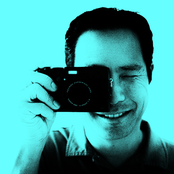
“Salad for Lunch” Austin, 2016
こんばんは!Howzit?
Today’s photo is of the delicious salads my friend Mikey and I enjoyed for lunch at Salata. When we get together, Salata is one of the top choices! I think it’s still a little odd that a salad can be so delicious.
Like many people, I grew up eating a lot of meat, and salad was just something that you ate before the main course. But now I believe that we are conditioned by Big Food into eating that way… I guess for my entire life we’ve had ads and food industry-influenced government telling us what foods are “good” for us, how much of it we need to eat, and when we need to eat.
It’s difficult to see things any other way if that’s all you’ve been exposed to. Other lifestyles can seem weird, unhealthy, or just plain wrong. That’s why I think you need to shake things up… for instance traveling to different countries or living abroad can really open your mind. Learning about other cultures and actually being immersed in them makes you question a lot of things.
I tend to look at people who have traveled extensively, or lived abroad, differently than those who have lived in the same place their whole lives. I really feel like they have a broader way of looking at the world. Of course this is not always the case, but there’s something to be said of first-hand experience and forming opinions based on direct experience, rather than forming a worldview based on mainstream news.
So, back to the salad… I am grateful that my friend Mikey suggested this lunch. It was a new experience for me, something I would never have considered, but one that I found I enjoy quite a bit! What else should I try?
I mentioned in a previous post that I had fasted (drinking only water, black coffee, and tea) for multiple days, 72-hours being the longest stretch without calories. That experience opened my eyes up to how we’ve been taught to depend on our 3 meals a day, and how it is not necessary to follow this lifestyle. It’s actually quite easy to skip a meal or two, and there are health benefits to extended water-fasts. But we’ve been taught that we need to eat. Constantly. That hunger is bad… we’ve also been taught that hunger=starvation. But hunger is not starvation at all.
Most of us have plenty of fat to keep us out of starvation for weeks. It sounds crazy, doesn’t it? But when you have done an extended fast, you realize that we don’t actually need to eat as much as we are told we need to. During a long fast, you actually lose the craving for junk/unhealthy foods and you can look at that craving from a detached point of view. Big Food has designed our diets to keep us craving high-fat, high-salt, and sugary foods. A water-fast will give you greater clarity about this. And you will recognize that there is a lifestyle where in which you are not dependent on Big Food’s guidelines.
Talk about a different point of view!!! I know most people will think it is crazy to go without food for 3 days, but have they tried it? I think if you do, you will have a broader view of eating, and how strong we can be mentally.
Wow, that was a bit of a ramble, wasn’t it? Anyways, I encourage anyone to look into water-fasting, and try to broaden your minds too! It’s seriously one of the best things I have ever done for myself in my life.
If you’ve read this far… thank you thank you thank you! 😄
Take care, and have a great weekend!
おやすみなさい!



